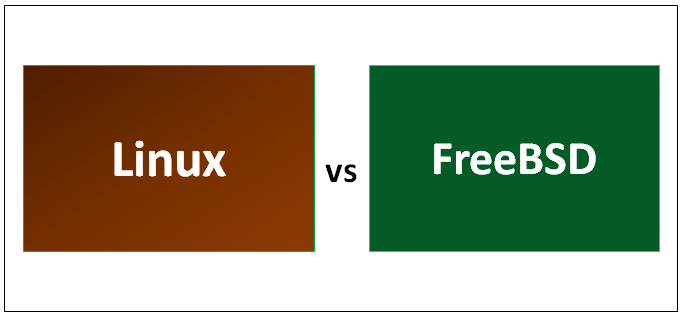
Both Linux and FreeBSD originate from the original Unix developed by Denis Ritchie and Ken Thompson at the AT&T Bell Labs and even though neither contains any of the original Unix codebases, they both kept the same structure and functionality.
What are the main advantages of Linux?
Linux is a family of free to use open-source software operating systems based on the Linux kernel, built from scratch as a Unix-like alternative. A wide variety of OS distributions, over 100 in total, use the Linux kernel, such as RedHat, CentOS, Fedora, Debian, Ubuntu, Android. While Linux was initially created as a free alternative to the MINIX OS, it has grown into the most used operating system on the planet by both userbase and variety of devices on which it can be installed. The various Linux distributions do not share only the same kernel, but also software and libraries, Linux having the biggest base of all general use operating systems. Linux is also the most used operating system on the majority of digital devices with the exception of the personal computer (where Windows has the lead) on systems like embedded systems, gaming consoles, smartphones, servers, cars, networking devices and so on. The Linux core is coded in C and assembly language, being developed in a centralized fashion and with backward compatibility between different kernel versions, and thus between distributions.
The Linux kernel is maintained by a single person, Linus Torvalds, its creator, who curates the code written for Linux by over 16000 programmers. The software written for Linux is not maintained along with the Linux kernel but rather distributed separately between distributions, repositories without being integrated into the OS as a whole, but rather as additional modules.
What is the deal with FreeBSD?
FreeBSD was developed from BSD(Berkeley Software Distribution), itself a variant of Research Unix. When we talk about BSD, we usually refer to the more popular BSD systems, such as NetBSD, OpenBSD, and FreeBSD. FreeBSD is an alternative to Linux, but which can run native Linux software and has compatibility modules that allow it to run binary apps for other OSs like Linux distros and Unix SCO. FreeBSD is a combined operating system, that features a kernel, libraries and user software, allowing it to have a more centralized learning path and usage, but because the development is built around the distribution, compatibility issues might arise between different BSD distributions. FreeBSD is not maintained by a core programmer but it has a whole organization that oversees the entire operating system, the kernel, and its software tools.
Usage accessibility
While FreeBSD has a unified learning curve, allowing you to use an operating system in its entirety, by learning progressively how to run each tool, Linux has a more steep learning path, with a wide variety of tools that do the same operation (like different package manager for each distribution, and sometimes different between even the previous version to the next one), many tools that can only be found in certain exotic repositories, numerous incompatibilities that crash because of unrelated software issue and so on. But in terms of usability, Linux has a greater variety of uses, given by the previously mentioned software diversity found amongst its distributions.
Security
In terms of security, both are superior over more consumer intended operating systems, such as Windows, because most malware is intended towards tech-illiterate users, but in order to use an OS like Linux or FreeBSD, you need to carry quite a large package of knowledge that comes with some cyber basic sense and experience.
On FreeBSD, there have been found only 3 vulnerabilities over the course of its existence, so it is safe to say that it falls under the category of extremely secure operating systems. That of course, varies with the operating administrator of any given system.
While Linux is a very secure operating system, numerous vulnerabilities may appear not because of the Linux kernel, but because of the numerous add-ons and modules that are needed to run specific tasks, but are not thoroughly checked by a large number of users, in the same way the Linux kernel is checked.

